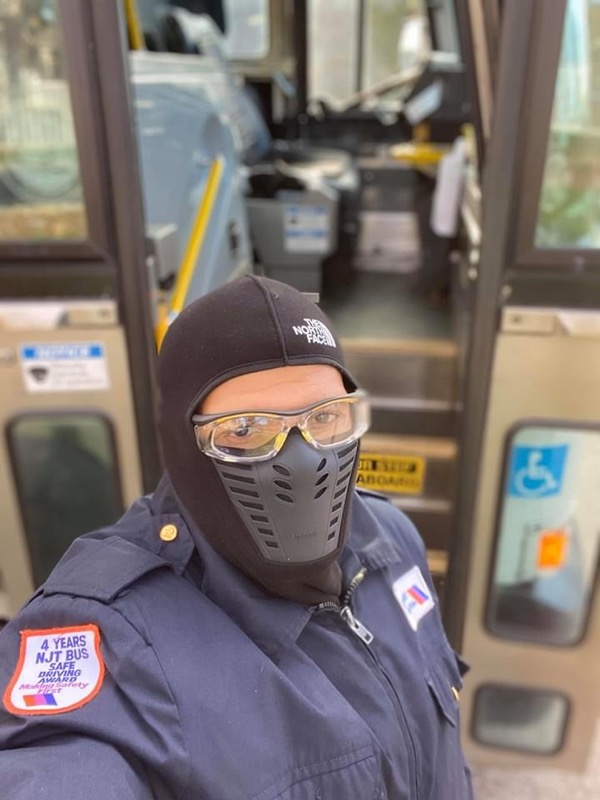ATU State Council Seeks COVID-19 Hazard Pay for Workers

With hundreds of NJ Transit workers infected and others dying, including at least two Amalgamated Transit Union (ATU) members, after contracting COVID-19, the ATU New Jersey State Council wants hazard pay along with other needed protections for workers and riders.
“Since the coronavirus pandemic began, NJ Transit workers have put themselves in harm's way in service to their communities. We are proud to carry essential workers - healthcare, grocery, and retail workers - and those who need care,” said ATU NJ State Council President Orlando Riley. “We have worked closely with NJ Governor Phil Murphy and NJ Transit to accomplish the Executive Order requiring masks for workers and riders and other protections. But more must be done to protect workers including hazard pay, on-site COVID-19 testing of NJ Transit workers and other safety measures. We remain committed to working with the Governor and NJ Transit to achieve these so we can continue to provide the critical transit service for our communities.”
The ATU played a key role in getting more than $1.7 billion in emergency transit funding for NJ Transit through the Coronavirus Aid, Relief, and Economic Security (CARES) Act passed by Congress. The CARES Act allows NJ Transit to use the funding to pay workers and to keep service running for frontline workers. In addition, the agency can purchase N-95 masks, gloves, other personal protective equipment (PPE) for transit workers and additional cleaning and sanitizing supplies.
While the ATU has worked with the agency and elected officials to secure many important protections including rear door boarding, passenger limits on buses, and PPE, the ATU NJ State Council is calling for additional measures to ensure worker and rider safety amidst COVID-19, including:
Compensating workers classified as essential workers during a public health crisis at least 1.5 times their normal wage.
Provision of recommended N-95 masks for all workers.
Enhanced cleaning and sanitizing of vehicles, stations, garages and other work locations.
Provision of fully-paid, on-site testing of transit workers for COVID-19 symptoms.
“The CARES Act gives NJ Transit the funds needed to give their workers the much deserved hazard pay, purchase needed N-95 masks, and implement the other important measures to keep us safe on the job,” Riley continued.
The ATU NJ State Council has let NJ Transit know that its members have the legal right to refuse assignments that put them in imminent danger.
The Union is ensuring their members understand their legal rights to refuse work when confronted with an imminent hazardous safety or security condition, as protected under the National Transit Systems Security Act, the Surface Transportation Assistance Act of 1982, the federal Occupational Safety and Health Act (OSHA), and the National Labor Relations Act.
“Our members are the life-blood of our transit system. They are risking their lives daily to ensure that our riders have access to essential trips,” Riley said. “We want to ensure their safety on the job for the sake of their families and our communities.”





